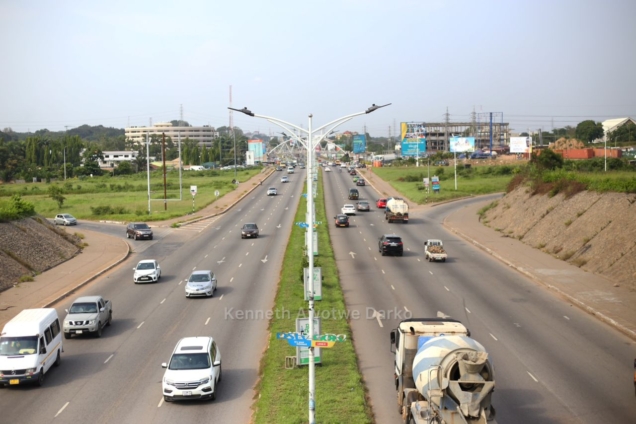The evolution of mobility in Ghana since independence reflects not just a shift in transportation methods but also mirrors the nation's journey towards modernity and progress.
From the tumultuous years following independence to the present day, Ghana's transportation landscape has undergone a remarkable transformation, with ride-hailing services emerging as a beacon of change.
The advent of ride-hailing services like Bolt has not only revolutionised how Ghanaians move from one place to another but has also catalysed economic opportunities and social advancements. In a country where traditional taxi services often struggled to meet the demands of a growing population, the introduction of ride-hailing platforms has alleviated many of the challenges associated with transportation, particularly in urban centres like Accra and Kumasi.
The impact of this transformation cannot be overstated. Beyond the convenience of summoning a ride with a tap on a smartphone, ride-hailing has empowered individuals, offering a means of livelihood to many Ghanaians who may have previously struggled to find stable employment. With platforms like Bolt providing opportunities for individuals to become drivers, entrepreneurship has flourished, contributing to the country's economic growth and development.
Furthermore, the integration of technology into the transportation sector has brought about improvements in transparency, accountability, and safety. Real-time tracking features ensure that users can monitor their rides, enhancing safety and security. Moreover, the shift towards digital payment methods has not only made transactions more convenient but has also fostered financial inclusion, particularly among segments of society that were previously underserved by traditional banking systems.
However, challenges persist in ensuring that the benefits of ride-hailing services are accessible to all Ghanaians. Disparities in internet connectivity, smartphone ownership, and digital literacy remain obstacles that need to be addressed to ensure equitable access to these services. As Ghana celebrates its independence, it is imperative that policymakers and stakeholders work together to bridge these gaps and create an environment where innovation and progress can thrive.
In essence, the evolution of mobility in Ghana symbolises the country's resilience, adaptability, and determination to embrace change. By embracing technology and entrepreneurship, Ghana is not only redefining its transportation landscape but is also laying the groundwork for a more connected, inclusive, and prosperous future.
As the nation looks ahead, it is clear that the journey towards progress is marked by innovation, collaboration, and a commitment to building a better tomorrow for all Ghanaians.
Latest Stories
-
Ghana signs €87.7m debt relief agreement with France
35 minutes -
Kumasi killings: Police snap checks intensify
58 minutes -
Almost a third of people in Gaza not eating for days, UN food programme warns
1 hour -
Afenyo-Markin offers apology to Dr. Ayensu-Danquah over “strange reasons” remark
2 hours -
How Dr. Ayensu-Danquah cleverly evaded Afenyo-Markin at her vetting
2 hours -
Dr. Ayensu-Danquah defends professorship, stating 15 years of teaching surgery
4 hours -
Access Bank honoured with two prestigious awards at 2025 HESS Awards
4 hours -
A/R: Aspiring nurse killed in Denase gun attack
5 hours -
Oti Region to get university within my tenure – Mahama reaffirms pledge
5 hours -
Kofi Bentil calls for abolition of regional ministers
6 hours -
Daughter killed in father’s arson attack over sex denial
6 hours -
GIHOC to undergo restructuring amidst crippling inefficiency and GH¢427m debt
7 hours -
NPA Scandal: Four suspects remain in custody after failing to meet bail conditions
7 hours -
NPP to open 2028 flagbearer nominations on July 29
8 hours -
Sam George to open Pan-African AI Summit 2025
8 hours

